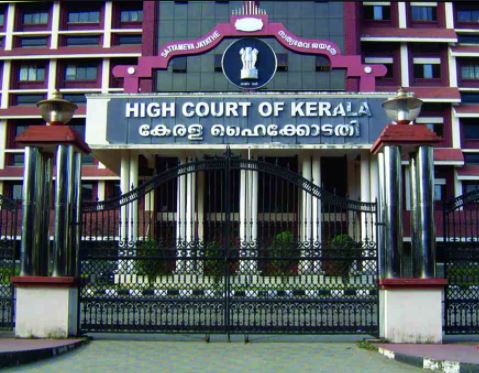The Kerala High Court has dismissed a Public Interest Litigation (PIL) on preventing cruelty to animals; “bulls” which are offered as offerings to the temple administered and managed by the respondents namely, Ochira Parabrahma Temple.
The PIL, filed by Dr Akshay Vedanga Prabhu, volunteer of the Kerala unit of the Gau Gyan Foundation, sought the following relief
“(i) issue appropriate writ, order or direction directing the respondents to safeguard and protect the sanctity of bulls and its life offered to the Ochira Parabrahma Temple by the devotees as offering.”
The main grievance raised by the petitioner is that believers/devotees of Ochira Parabrahma Temple, in consonance with custom, belief and devotion, offer gifts or dedicate bulls, cows, etc. to Ochira Temple. These offerings of the devotees are received by the respondents and taken care for some time. Later on, they are either sold or sent to for slaughter.
K. Shri Hari Rao, counsel for the petitioner, submitted that having accepted a gift from the believers of the place, particularly, in consonance with the traditions, customs, beliefs and devotion, the committee ought not to make over or sell the gift so received to abattoir.
T.S.Harikumar, counsel appearing for the respondents, submitted that the petitioner filed the PIL without even inquiring about the factual situation about the offering of bulls to the temple by the devotees and the subsequent maintenance of those bulls by the temple.
A detailed counter-affidavit in this regard has also been filed on behalf of the respondents wherein, it is averred that the temple administration committee in 2017 decided not to accept any bull as offering from the devotees and it was made known to the devotees through publication in the newspaper.
It is also stated therein that the devotees who wants to offer a bull to the temple has to pay the money as they wish and to accept the receipt from the temple administration board.
According to the counsel for the respondents, the temple is no longer accepting any bull, as an offering from the devotees and hence the question of selling those bulls or sending them for slaughtering do not arise.
On a perusal of the entire materials available on record, the Division Bench of Chief Justice S. Manikumar and Justice Shaji P. Chaly found that there is no supporting documents to substantiate the prayers sought for in the writ petition, which is styled as a public interest litigation.
The Court observed that every Public Interest Litigation must be filed in accordance with the following rules:
Every PIL must indicate that the petitioner has no personal interest in the case. If he has any personal interest, he must disclose the same. In the event of the High Court finding the claim as frivolous or vexatious, the PIL shall be dismissed with exemplary cost.
If the PIL is filed on behalf of a class of persons, the details of the persons for whose benefit the PIL is filed, must be indicated. If it is a society or association of persons, the writ petitioner must enclose a resolution from such society or association of persons, authorising the petitioner to file the writ petition and if the body is duly registered with competent authority, a copy of the bye-laws of the said body authorising the petitioner to file the writ petition, shall be enclosed.
If the petitioner has filed any PIL earlier, the details of the petition, and the final order, if any, passed in that petition, the relief granted and costs, if any, awarded, shall be indicated. No Public Interest Litigation Petition will be entertained in respect of civil disputes between individuals or in service matters. The petitioner shall give an undertaking that he will pay the costs, if any, if it is found to be intended for personal gain or oblique motive.
The petitioner must disclose whether he has filed the petition out of his own funds or from other sources. If it is the latter, the particulars should be given.
The petitioner must state in the affidavit that to his knowledge, no PIL arising on the same issue, has been filed anywhere.
The affidavit filed by the petitioner must contain the averments that he has filed the writ petition based on his information and his personal knowledge. If he has filed the writ petition based on an information received from any other source, he must clearly indicate the source. If it is a newspaper report, the affidavit shall clearly state as to whether the deponent has verified the facts by personally visiting the place or talking to any responsible person or Reporter or Editor of the newspaper concerned.
If the petitioner has given any representation to any authority, a copy of the same shall be filed in the typed set of papers along with reply, if any, received from the authority. He shall file the proof of service of representation before the Court.
On the aspect of public interest litigations and the principles governing the same, the High Court deemed it fit to extract a few decisions:
(1) Guruvayur Devaswom Managing Committee & Anr. v. C.K. Rajan & Others [(2003) 7 SCC 546].
(2) Kerala High Court Judgement in B. Radhakrishna Menon v. State of Kerala and Ors. [W.P.(C) No.12109 of 2020].


